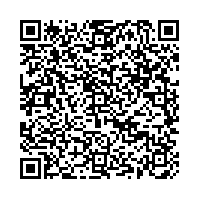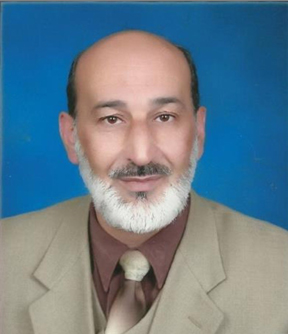The Dimensions of the Prophetic Discourse in the 40 Hadiths Nawawi
DOI:
https://doi.org/10.25255/jss.2021.10.1.69.94Keywords:
Speech, prophetic, dimensions, public speech, command speech, A speech of affection and kindnessAbstract
This paper aims at exploring the rhetoric of the prophetic discourse in the Hadiths collected by Al-Nawawi. It is composed of four aspects. Firstly, public discourse by using thewordswho and all, or what pertains to a specific incident for a person whose name was not assigned for polite purposes, so that the speech is directed to any recipient or Muslim over time, focusing on the event not on the person and associating actions with their past and present times.Therefore, the rhetoric was expressed as a result of arranging the words, employing them and their beauty in harmony with their context and location. Secondly, the command and prohibition discourse of the individual and the group according to the purpose of the discourse and its rhetoric with the beauty that was brought about in the style and verbal ornaments associated with the status of the recipient. For example, "O, Sons of Adam", "O Young boy", and "O My Servants " in the Qudsi Hadith, employing the method of urging, "May I..?". Such wordings were crowned by the aspect of the wording texts, briefly and shortly in terms. However, it included great meanings and benefits with beautiful phrases and eloquent style, implying social, educational and global dimensions that have their impact on the recipient. These phrases have had their echo in societies and assemblies, such as, "(The value of) an action depends on the intention behind it" and ".. And he who is slow-paced in doing good deeds, his (high) lineage does not make him go ahead.", that have made them general rules and a method of life to be followed.
Downloads
References
Al-Bagha: Mustafa, Kitab Al-Arbaeen Al-Nawawi, Controlled, Institution of Qur’an Sciences, Damascus, i (1), 1400 AH, 1980 CE.
Al-Bahrani: Kamal Al-Din Maytham, Usul Al-Balaghah, T: Abdul Qadir Hassan, Dar Al-Thaqafa, Doha, ed (1), 1406 AH - 1986 AD.
Al-Bukhari: Muhammad bin Ismail, Sahih Al-Bukhari, Dar Al-Fikr, 1414 AH - 1994 AD.
Al-Fayrouz Abadi, Majd al-Din Muhammad Ibn Ya’qub, Al-Qamoos Al-Muheet, Foundation for the Message, ed (3), 1413 AH -1993 AD.
Al-Jahiz: Abu Uthman Amr Ibn Bahr, Al-Bayan and Al-Tabiyyin, edited by Abdul-Salam Haroun, Dar Al-Jeel, Beirut.
Al-Jarim: Ali, and Mustafa Amin, the Clear Rhetoric, Dar Al Ma'arif, Lebanon.
Al-Jarjani: Abd al-Qaher, Asrar al-Balaghah, edited by: Muhammad al-Iskandarani, Beirut, Arab Book House, 1996.
Al-Qurtubi: Abu Abdullah Muhammad bin Ahmed Al-Ansari, the Compiler of the Rulings of the Qur’an, the Arab Book House.
Al-Rafi'i: Mustafa Sadiq, The Miracles of the Qur’an and the Prophetic Rhetoric, House of the Arab Book, Beirut, ed (9), 1393 AH - 1973AD.
Al-Rajhi: Abdo, The Morphological Application, Dar Al-Nahda Al-Arabiya, Beirut, 1979.
Al-Sabki: Layers of Shafi'i.
Al-Saleh: Subhi, Science of Hadith and Its Terminology, Dar Al-Ilm for millions, Beirut, Edition (15), 1984 AD.
Al-Shabrakhiti: Ibrahim bin Mari bin Attiyah, Explanation of Al Shabrakhiti on the Forty Hadith Al-Nawawi, printed in Egypt.
Al-Shanqeeti: Muhammad al-Amin ibn al-Mukhtar, Memorandum on Usul al-Fiqh on Rawda al-Nazir by Ibn Qudama, Dar al-Qalam, Beirut.
Al-Zarkashi: Badr Al-Din Muhammad Bin Abdullah, Al-Burhan in the Sciences of the Qur’an, Dar Al-Kutub Al-Ilmiyya, Beirut, 1422 AH - 2001 AD.
Al-Zuhairi: Mahmoud Hussein, The Effect of Context on Directing the Qur’an Meaning through Juz 'Amma, Dar Wael, Amman, i (1), 2014 AD.
Bazzi: Muhammad, The Arabic Hermeneutics, Arab Science Publishers, Algeria, 1 ed., 1431 AH - 2010 AD.
El-Hamalawy: Sheikh Ahmed, the scent of custom in the art of exchange.
Estetia: Samir, Linguistics, the Majl, Function, and Method, Modern Book World, Irbid, Jordan, ed (1), 1425 AH - 2005 AD.
Guest: Shawky, the Islamic Era, Dar Al Ma'aref, Egypt, Edition (7).
Ibn al-Qayyim al-Jawziyyah: Shams al-Din Abu Abdullah bin Muhammad, Zad al-Ma'aad in the guidance of Khair al-Abad, T: Shuaib al-Arna'out, Foundation for the
Message, Beirut, Edition (10), 1405 AH - 1985 CE.
Ibn Aqeel: Bahaa Al-Din Abdullah, Sharh Ibn Aqil, Dar Al-Talaa ', Cairo, 2009 AD.
Ibn Daqiq Al-Eid, Explanation of the Forty Hadiths Al-Nawawi, Printing, Press and Publishing Corporation, Jeddah.
Ibn Hisham: Jamal Al-Din Al-Ansari, Mughni Al-Labib on the Book of Al-A`rib, edited by: Mazen Al-Mubarak, Islamic Book Publishing House, Edition 1, 1979 AD, Lahore.
Ibn Jani: Abu Al-Fath Othman, Characteristics, edited by: Muhammad Ali Al-Najjar, House of General Cultural Affairs, Baghdad, 1990 AD.
Ibn Kathir Imad al-Din, the beginning and the end.
Muslim: Imam Abu Al-Hussein Muslim bin Al-Hajjaj, Sahih Muslim, Verification of Its Texts, Muhammad Fuad Abd Al-Baqi, Dar Al-Kutub Al-Ulmiyyah, Beirut, 1413 AH - 1992 AD.
Nassef: Mustafa, Conversations with Arabic Prose, World of Knowledge Series, Kuwait, Ramadan 1997 - 1417 A.D.
Pinkrad: Said, Processes of Interpretation, Dar Al-Aman, Rabat, ed. (1), 1433 AH - 2012 AD.
Qutb: Muhammad, Kisses from the Messenger, Dar Al-Shorouk, Cairo, 17th Edition, 2008 AD.
Qutb: Sayyid, In the Shadows of the Qur’an, Dar Al-Shorouk, ed. (15), 1408 AH - 1988 AD.
Sebawayh, Abu Bishr Amr bin Othman, Book of Sebwayh, edited by: Abd al-Salam Haroon, Al-Khanji Library, Cairo, (3) ed., 1427 AH - 2006 AD.











 a Creative Commons Attribution 4.0 International License.
a Creative Commons Attribution 4.0 International License.

